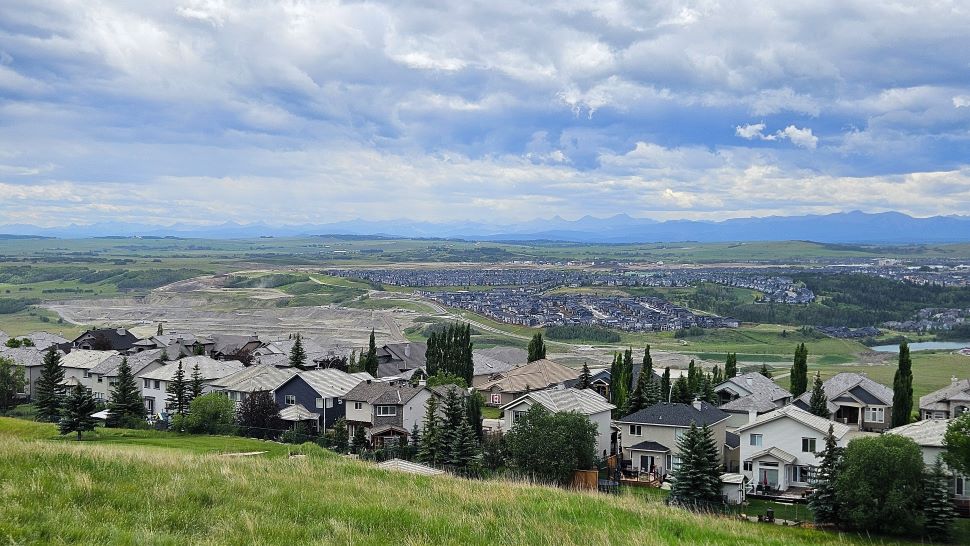An outcry from residents has prompted today’s public review of Heidelberg Materials Canada’s application to reallocate a water licence from its Bearspaw pit to its Cochrane operation.
The company is seeking additional water access for gravel washing, concrete production, and site reclamation at its Cochrane facility. The Bearspaw Pit licence has a gross diversion of 450-acre-feet. Heidelberg is seeking to transfer 350 acre-feet to their Cochrane operation and return the balance to the province.
It’s the proposed addition of a ready-mixed concrete plant at the existing aggregate operation that has continued to draw backlash from area residents.
After initially determining a review to be unnecessary, Alberta Environment and Protected Areas (AEPA) scheduled a public session for July 10, beginning at 4 p.m. According to Paul Trotter, of The Concerned Citizens of Cochrane group, only those who submitted inquiries by June 5 can attend the virtual meeting on Microsoft Teams.
The review is being co-chaired by Craig Knaus, approvals manager at Alberta Environment and Parks, and Emily Guzman, environment and sustainability manager for Heidelberg Materials.
A handout from Heidelberg outlines several topics to be addressed, including the application process, water volumes used in processing, recycling, treatment and disposal, shortages, water testing, water used for dust suppression, and potential impacts to aquatic environments.
In a May 15 notice, the AEPA director initially told respondents that a public review wasn’t warranted.
“The director under the Water Act has the authority to decide on the form and manner of the review,” the letter states in part. “At this time, due to the limited number of requests, Environment and Protected Areas will be utilizing an equivalent process to provide you the opportunity to get further information in relation to the application under the Water Act.”
The director later reversed his decision, based on the number of requests for the public review and number of statements of concern submitted. Those requesting the public review were invited to attend.
As of today, 1,134 people have signed a change.org petition titled “Halt the Construction of the Proposed Ready-Mix Concrete Plant,” which has been online since Mar. 6, the same day Heidelberg held an open house about the project.
“Those who attended the open house found that the format was not conducive to understanding the project,” said Trotter in a May 29 letter to Shabnam Mostofi, an AEPA water approvals engineer. “It was a group of concerned citizens who actually publicized the event, as the ad given by Heidelberg went unnoticed by most Cochrane residents.”
Kim Brenneis, a member of the concerned citizens group, said residents do not believe the economic benefits outweigh the potential impacts on quality of life and the environment.
“We just don’t see the cost-benefit for the town,” said Brenneis, who lives in Gleneagles. “Minimal economic benefits for 10 years of additional noise, light pollution, and dust. Talk to the people right around the gravel pit—they’re already having dust issues.”
The group has also questioned the validity of the studies presented by Heidelberg at the March public meeting.
“It’s very clear their noise study, traffic study, and water studies are all inadequate,” said Brenneis.
He said the modelling focused only on the batch plant, without factoring in cumulative impacts.
“There’s a batch plant, an aggregate operation, trucking, gensets for power—there’s a whole bunch of things going on, but they didn’t assess them together. So we think their studies are flawed. While we don’t want it at all, at a minimum, make them stop and do the right studies to ensure we can have a proper public discussion with all the facts.”
He said that during the information night, it wasn't disclosed that there was a pending water licence transfer or water source issue.
"So now they plan to propose to operate the batch plant year-round," he said. "This requires water supply in the winter, We don't have all the information, but it remains unclear to us how they're going to secure winter water access,"
"In addition, they're asking for the water license to go until 2046, and one of the selling features of the batch plan from them is that we'll get through the gravel operations quicker. We'll all be done in 10 years instead of 20 or 30 years of gravel activity. Well, why do they need a water permit until 2046? That gives us a little bit of concern as well."
RELATED NEWS
Heidelberg received approval for the project from the Town of Cochrane on Apr. 17, 2024, but withdrew its building permit in late May, citing the need for further public consultation.
“Our company recognizes the need to share more details with residents about the project, explain the design features that minimize impacts to residents and the environment, as well as better describe the benefits of the project to the community and local economy,” the company said in a statement.
Previous to that, 99 Cochrane residents signed an appeal outlining 52 concerns, which was submitted to both the town and the provincial Land and Property Rights Tribunal on May 16.
The town is currently reviewing the revised application.
Cochrane Now’s requests to Craig Knaus and other provincial officials for further information were not returned.
